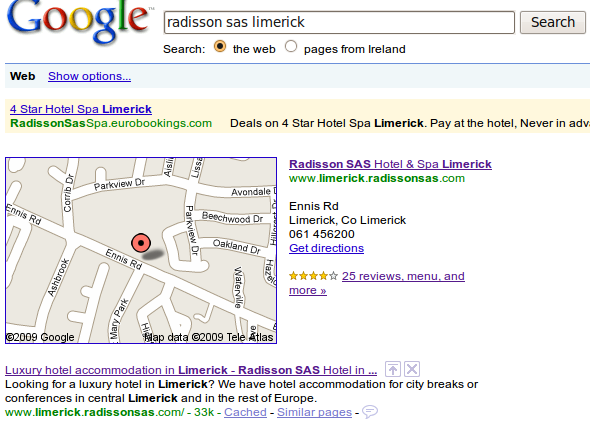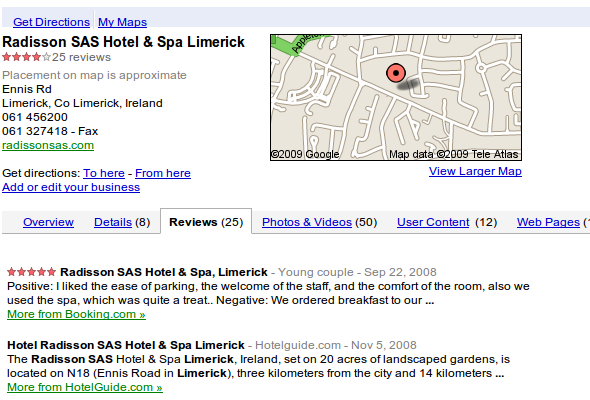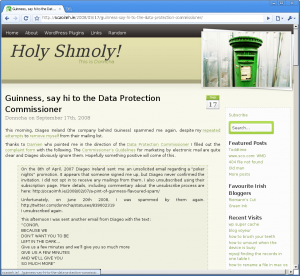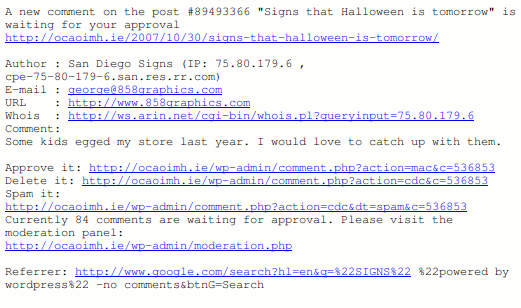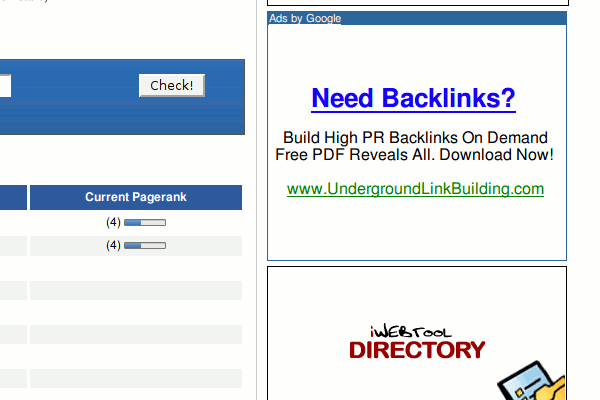What you’re about to learn isn’t anything new. It’s not particularly earth shattering either, but a lot of people don’t know it.
NOFOLLOW DOES NOT WORK (properly)
You may have noticed legitimate looking comments on your blog from people with suspect names. Usually the name will be a brand name, service or literally anything that sells. The commenter’s website is obviously related to that business. Why do they bother using special keywords when Google is supposed to not follow those links? Do they know something you don’t? Yup. They know that keywords, even on nofollowed links, matter. I’d provide reference links to SEO blogs explaining this but then they’d know I’m reading and they might shut up.
So, how do you go about spamming blogs? (And how do you defend against those spammers?) Here are two examples:
George, who runs 858graphics obviously makes signs in San Diego. I’m sorry that his store was egged last year, but he’s obviously trying to manipulate Google. Unfortunately, he succeeded. He is #2 in Google for “San Diego Signs”. Strangely enough there are no links to his website.
This second guy isn’t quite so successful, and to think he’s spamming my poor Shih Tzu, Oscar. The spammer’s domain is near the bottom of the first page of a Google search for Shih Tzu Checks. That’s still pretty good considering he doesn’t have any links to that page either.
How did these guys find my blog? The first guy searched for WordPress blog posts with comments. The second looked for a page saying, “leave a reply”, an open invitation to spam if ever there was one!
Out of curiosity I followed the Google search a recent spammer used. On the blogs surrounding my blog in that search I found traces of him everywhere. He left legit looking comments but the link was always full of keywords for his business.
Stuffing keywords in nofollowed links certainly helps rank for keywords.
So, you want to know how to fight back? It’s very simple if you’re using WordPress:
- Install my Comment Referrers plugin. That will add a line at the end of the moderation emails with the referrer of the visitor. Some referrers should ring alarm bells!
- Install Delink Comment Author. This plugin removes the link the comment author left as their URL. I modified my install so it removes the email too as I moderate comments from new users.
- I was planning on coding this next plugin, but I found Lucia’s Link Love first and that saved me the trouble. I modified mine so it doesn’t hyper link the name of a comment author who has left less than a certain number of comments. See this comment as an example. That “Landscape Artist” never came back to my blog again so his “name” isn’t linked to his site.
So, chances are a few more people are going to try this technique now that I’ve blogged about it. I bet many more blog owners will be more vigilant of it now though. It’s your blog. If you don’t want to be pawn to a spammer then fight back!
Edit: Here is my version of Lucia’s Linky Love. Just rename this file to .php and drop into your plugins folder. If you’re not logged in or have a comment cookie in your browser you should see some comment author’s names won’t be linked.


